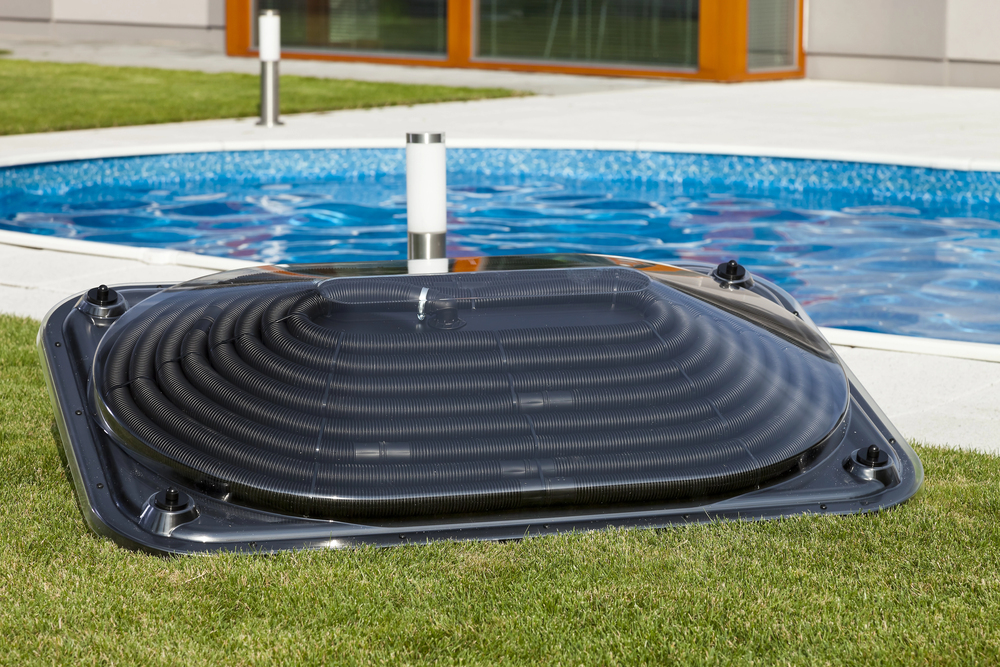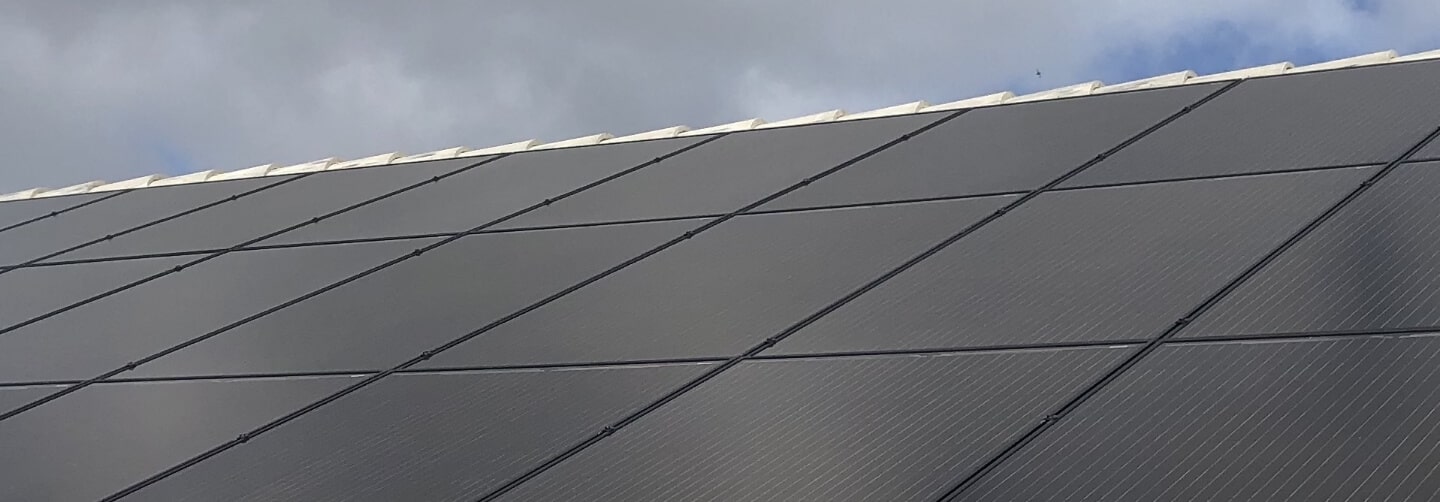How Much Does Solar Pool Heater Installation Cost?

A warm pool extends the swimming season, increases comfort, and encourages more use. Many homeowners are turning to solar heating because it uses renewable energy and can lower long-term expenses. Understanding solar pool heater installation costs is key before moving forward. The investment depends on more than equipment price.
Factors like pool size, climate, panel type, and labor all influence the final number. By asking the right questions, you can choose a system that matches both budget and performance goals.
Why Costs Vary for Solar Pool Heater Installation
When people hear “solar pool heater,” they often expect a fixed price. In reality, costs differ from one project to another. Each pool is unique, and the system must be sized to match its volume and heating needs. A large pool in a cooler region may need more panels than a smaller pool in a warm area. Labor charges also vary based on roof type, plumbing layout, and accessibility.
Regional differences matter. For example, Southwest Florida enjoys more sunlight than northern states, which can reduce the number of panels needed. On the other hand, complex roof designs or older pool systems may require additional work, which adds to installation costs.
Average Cost Ranges for Pool Solar Panels
The price for pool solar panel installation can start around a few thousand dollars and move upward based on size and materials. A smaller residential pool in a sunny climate may require fewer panels and simpler plumbing work, while a large commercial pool will have higher equipment and labor costs.
In general, the cost of pool solar panels includes:
- Solar collectors – These are the main panels that heat the water.
- Controller and sensors – These regulate water flow and heating.
- Mounting hardware – Used to attach panels to a roof or rack.
- Plumbing and valves – Connects the pool’s existing pump to the heating system.
- Labor – Covers the installation work from start to finish.
This total investment must be compared with the potential savings in heating costs over time.
Breaking Down the Main Cost Factors
Several factors influence solar pool heater installation cost. Here are the most common ones.
- Pool Size and Volume
Larger pools require more solar collectors to heat the water effectively. This directly impacts equipment and labor costs. Pool volume is measured in gallons, and a system must be matched to heat that amount within a reasonable time frame.
- Climate and Sun Exposure
A home with year-round sunshine will need fewer panels than a home in a cloudy or cooler area. The location of your pool and the orientation of your roof also affect performance and cost.
- Type of Solar Pool Heater
Different solar pool heaters exist. Unglazed systems are more affordable and work well in warmer climates. Glazed systems have an enclosed cover for better heat retention and are better for cooler areas, but come at a higher price.
- Roof or Ground Mounting
Roof-mounted panels often require additional labor for securing brackets and running plumbing lines. Ground-mounted systems may involve trenching and more materials, but can be easier to access for maintenance.
- Labor Rates in Your Area
Local installation rates vary. Some regions have more competition, which can bring prices down. Others have fewer contractors, leading to higher labor charges.
How the Installation Process Affects Cost
Pool solar panel installation follows a clear process. Each step can influence the overall cost depending on complexity.
- Assessment and Sizing – An installer measures the pool and evaluates sunlight exposure. This helps determine the number of panels needed.
- Plumbing Modifications – The system connects to the existing pool pump. Older setups may need additional fittings or upgrades.
- Mounting Panels – Whether on a roof or the ground, this step requires labor and hardware. Roof type matters—tile roofs often require more careful work.
- System Integration – The controller and sensors are installed to regulate heating automatically.
- Testing and Adjustment – Water is run through the system to confirm proper heating before the job is complete.
Extra time in any step can increase the labor portion of the bill.
Comparing Solar Pool Heaters to Other Heating Options
When weighing the cost of pool solar panels, it helps to compare them to alternatives.
- Gas Heaters – Heat quickly but have ongoing fuel expenses.
- Electric Heat Pumps – More efficient than gas but still require electricity.
- Solar Pool Heaters – Higher upfront cost but very low ongoing costs since they use the sun’s energy.
Over the life of the system, solar often becomes the more affordable choice due to lower operating expenses.
Maintenance Costs to Consider
While solar pool heaters have minimal maintenance needs, there are still minor costs over time. Cleaning debris off panels, replacing a valve, or adjusting plumbing are occasional tasks. Many homeowners can handle basic upkeep, but some prefer to hire professionals for seasonal inspections. This cost is small compared to the savings from reduced utility bills.
How Financing Can Impact Your Total Cost
Some homeowners choose to pay for their system up front. Others use financing to spread payments over time. While financing adds interest, it can make solar heating accessible without a large initial payment. Certain areas may offer incentives or rebates that help offset the cost.
You can learn more about installation options by reviewing available solar services that cover both residential and commercial needs.
The Role of System Lifespan in Value
A well-installed solar pool heater can last 10 to 20 years. While the initial price may feel significant, spreading the cost over that lifespan shows strong long-term value. The longer you use your pool without paying high heating bills, the greater the return on investment.
Why Professional Installation Matters
Choosing an experienced installer helps avoid costly mistakes. Proper sizing, secure mounting, and correct plumbing connections are vital for performance. A poorly installed system may fail early or underperform, leading to frustration and extra repair costs.
Companies specializing in solar pool heaters understand how to match the system to your climate, pool size, and roof structure for maximum benefit.
Impact of Pool Usage Habits on Costs
If you use your pool daily for most of the year, a solar heating system can offer greater savings. Infrequent swimmers may not see the same financial return, though comfort and convenience may still justify the expense. Usage patterns influence how quickly the investment pays for itself.
Additional Factors That Influence Solar Pool Heater Installation Cost
Several additional elements can influence the total price of a pool solar panel installation. While equipment and labor make up the core costs, these smaller factors often shift the final figure.
- Roof Orientation and Angle
The roof’s position in relation to the sun affects how efficiently pool solar panels capture heat. South-facing roofs with minimal shading allow for maximum energy absorption. If the roof angle is less than optimal, additional mounting equipment may be required, adding to the overall pool solar panels cost.
- Local Permits and Regulations
Some areas in Florida require permits before installing solar pool heating systems. Permit fees vary based on municipality and project size. These costs may seem small compared to equipment, but they are part of the overall budget. Delays in permitting can also increase labor expenses.
- Climate and Seasonal Use
Florida’s warm climate allows for extended pool usage, but regions with cooler nights may require slightly larger systems to maintain consistent water temperature. The system size directly impacts the final cost, as larger systems require more panels and potentially stronger pumps.
- Type of Pool Plumbing
Pools with older plumbing or complex layouts may need extra modifications during installation. Flexible piping, additional valves, or pump upgrades can add to labor and materials costs. For example, pools with multiple return lines might require extra diverter valves to direct water through the solar panels.
- Upgrades for Efficiency
Some homeowners choose to add automatic controllers or flow meters to regulate water movement through the solar panels. While optional, these features can increase system performance and convenience. They also slightly increase the initial investment.
Balancing Cost and Long-Term Value
A solar pool heating system is more than an upfront expense. It is a long-term investment that can save money over time by reducing or eliminating the need for gas or electric heaters. Florida homeowners benefit from the state’s abundant sunlight, which can keep operational costs extremely low.
In most cases, the system pays for itself in just a few years through reduced utility bills. The savings extend further because well-maintained systems can last 15–20 years. This durability means you continue to enjoy warm pool water without constant reinvestment.
When to Contact Professionals
For the most accurate pool solar panels cost estimate, a professional evaluation is necessary. Experts assess roof structure, pool size, plumbing layout, and exposure to sunlight. An in-person inspection also allows for discussion of optional features, efficiency upgrades, and warranty terms.
It is beneficial to choose a contractor who handles everything from system design to installation and after-service. This ensures that the system works at maximum performance from day one.
Warm Your Pool with a Smart Investment
At Solar Energy Solutions of America, we specialize in solar pool heaters tailored for Florida homes. Our solar services cover everything from evaluation to installation, including solar electric solutions. We design systems that fit your pool, budget, and long-term goals. Enjoy year-round swimming with an efficient, reliable system that works with Florida’s abundant sunshine.
Contact us today to get your free, no-obligation estimate and start enjoying warmer water without the high energy bills.
